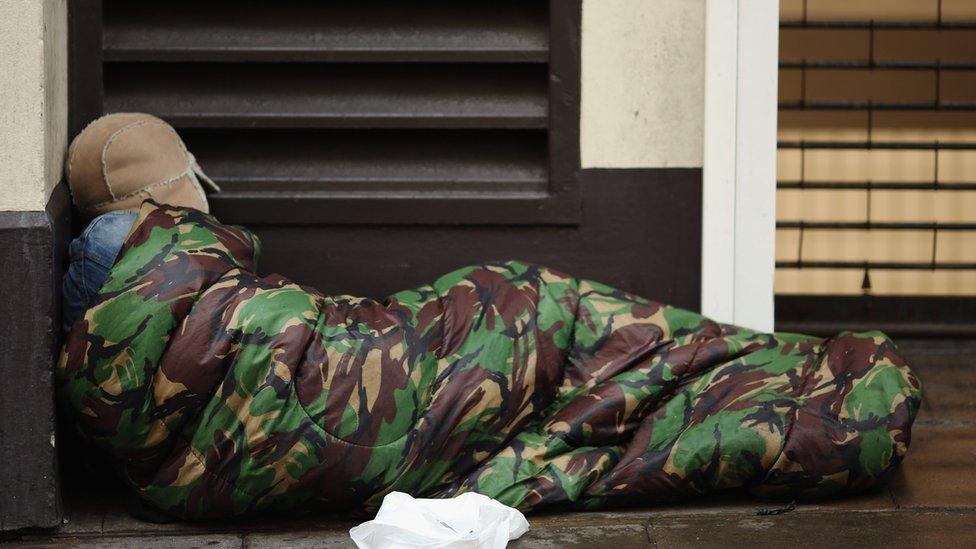More people in homelessness struggle after Covid, says charity
- Published
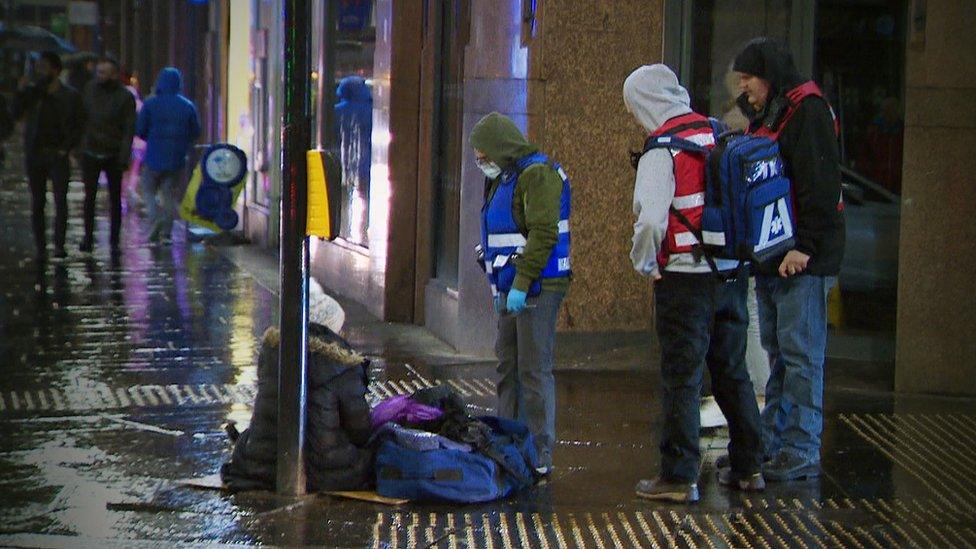
Street teams offer help to anyone who needs it in Glasgow city centre
Homeless people are "struggling to cope with life" amid the cost of living crisis, a charity says.
Homeless Project Scotland said the number of people rough sleeping or without a home in Glasgow is growing.
Glasgow City Council said an increase in requests for help was linked to the social and economic impacts of Covid.
Scottish government figures show the number of reported rough sleepers is still lower than before the pandemic, but there has been a recent increase, external.
Homeless Project Scotland co-founder Colin McInnes said the situation is worse than many people realise.
"There's the universal credit cut, heating bills are going up, there's people saying they're struggling to cope with life," he said.
"We've had harrowing mental health stories in the last couple of weeks."
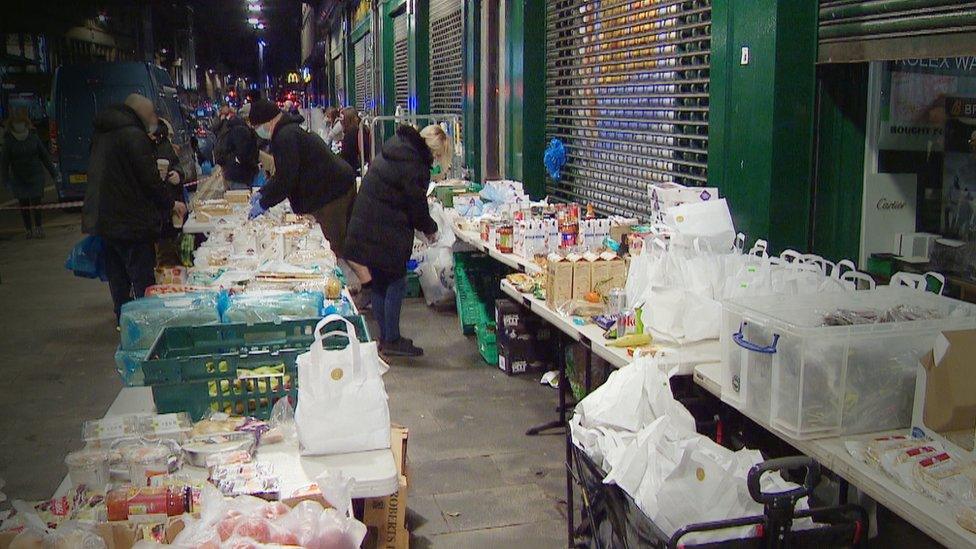
Project co-founder Colin McInnes said homelessness is worse than many people realise
In Glasgow, the charity runs a soup kitchen three times a week and sends out street teams to help vulnerable people. Most people using the service have a temporary roof over their head.
One visitor is 20-year-old Victoria, who is living in semi-supported accommodation.
"The cost of living has gone up," she said. "The other day I was struggling to get electric. I managed to get it eventually but it was really, really tough."
Another, who the BBC agreed to call Linda, said she had been homeless for three-and-a-half years.
She said her situation was "sorted now" and Homeless Project Scotland volunteers help her with her mobile phone and give her supermarket vouchers.
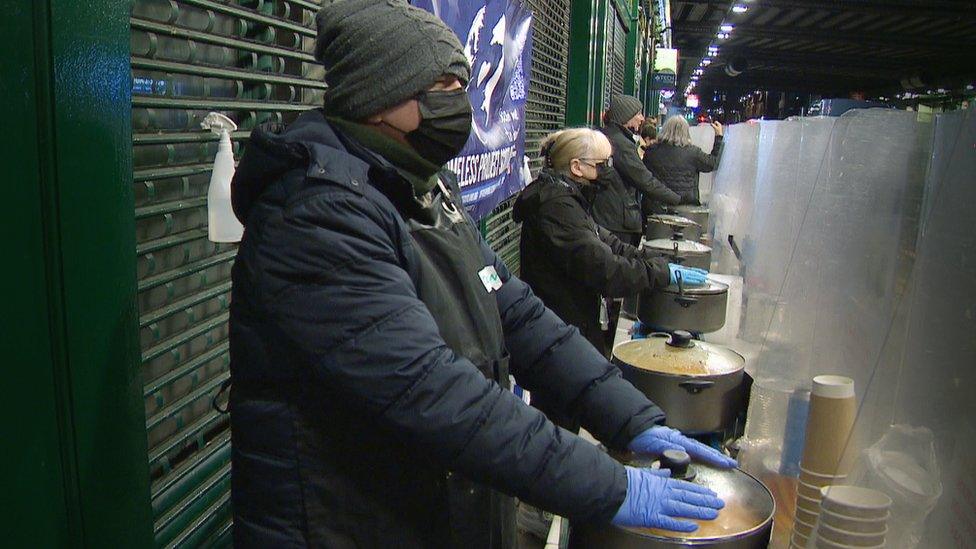
The charity runs a soup kitchen in Glasgow three times a week
When the soup kitchen closes, street teams walk around Glasgow city centre offering help to anyone who needs it.
One man is sleeping in a tent in a doorway. He has complex mental health problems and said he doesn't want to go into a homeless hostel.
Another man, Duncan, said he had been on the "homeless scene" for years but is currently in accommodation:
"I don't think there's much help for people with addictions or on the streets," he said.
"There's people in hostels and rehab and whatever but there's not enough funding for people like that."

The barber making lives better
Danny Whitehowe offers haircuts for free outside a soup kitchen in Glasgow on Friday nights.
Danny White Howe sets up his barber chair on Friday nights next to the soup kitchen. He offers haircuts to those in need.
"Haircuts are quite expensive now, so I try and make people's lives a bit better," he said.
"Almost everybody who comes down here really appreciates everything you're doing and they're really polite."
A man approaches Danny who's had his hair cut by him before. He offers £2 because he now has "a wee bit of money". Danny tells him he'll donate the cash to charity.
"It's almost for selfish reasons that I'm trying to give back to people who haven't been in the same circumstances as me," he said.
"I grew up from a really nice background, I've always had everything I need. Once I learned I could help people it just makes me feel good."

Before the pandemic, from July to September 2019, there were 469 applications for housing where someone had reported sleeping rough the night before.
Scottish government data shows this figure fell to a low of 294 applications from January to March 2021. This number rose again to 363 in the latest figures, from July to September 2021.
Glasgow City Council said its homelessness services had seen an increase in requests for assistance linked to the social and economic impacts of the pandemic, which increased pressure on families.
It also said it had increased investment to prevent homelessness - providing extra funding for a family mediation service and increased investment in debt advice services.
'Rapid rehousing'
A spokeswoman said: "No one need sleep rough in Glasgow, help is available. Our rough sleepers and vulnerable services team go out daily and offer accommodation and support to anyone they find rough sleeping.
"The housing first team has also provided almost 250 homeless people with complex needs, such as mental health and addictions issues, with secure tenancies and support."
The Scottish government said it was working to end homelessness
A spokesperson said: "We're working closely with local authorities to help them implement rapid rehousing and housing first approaches, and are providing £53.5m to support this work."
A UK government spokesperson said: "Throughout this pandemic, the UK government has spent over £400bn protecting people's jobs, livelihoods and supporting businesses and public services, including through a temporary uplift to universal credit.
"Universal credit will continue to provide vital support for those both in and out of work and it's right that we should focus on our multi-million pound plan for jobs, supporting people back into work or to earn more."
Related topics
- Published23 February 2021
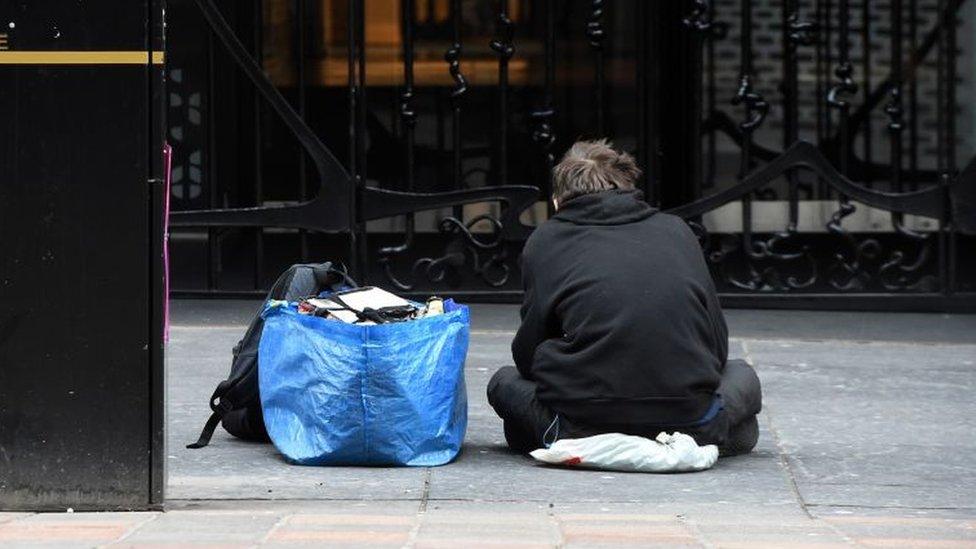
- Published30 November 2021
